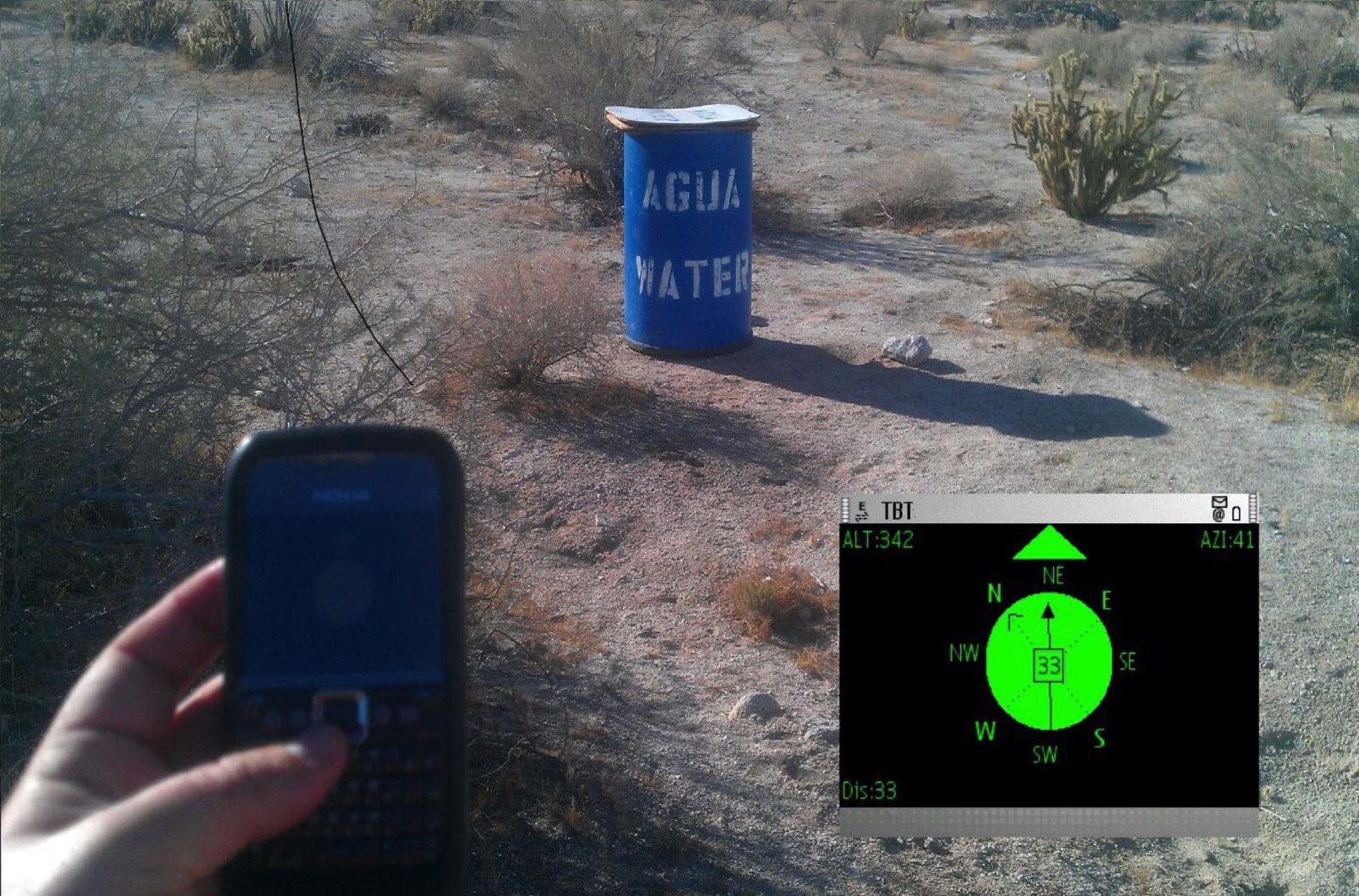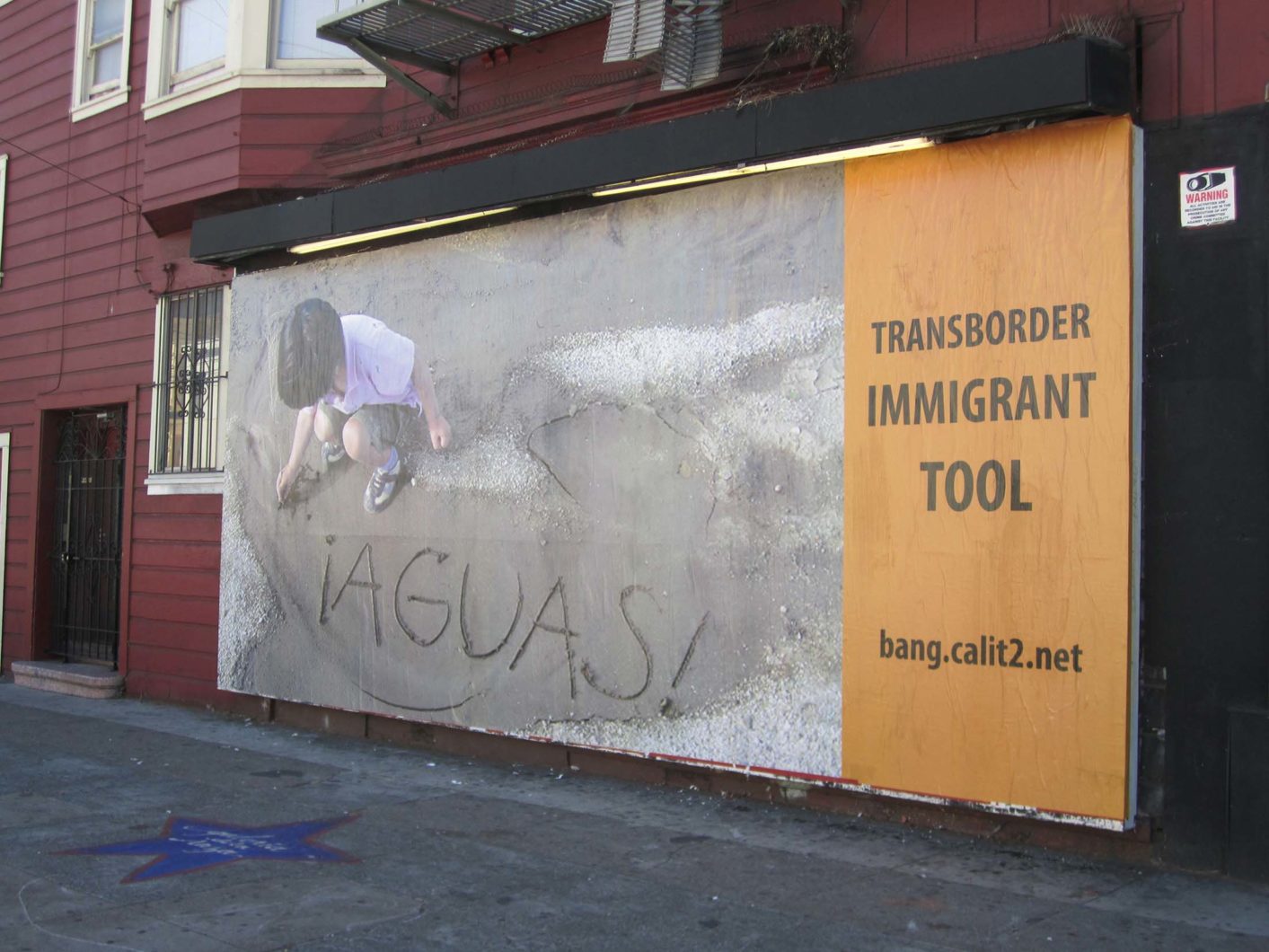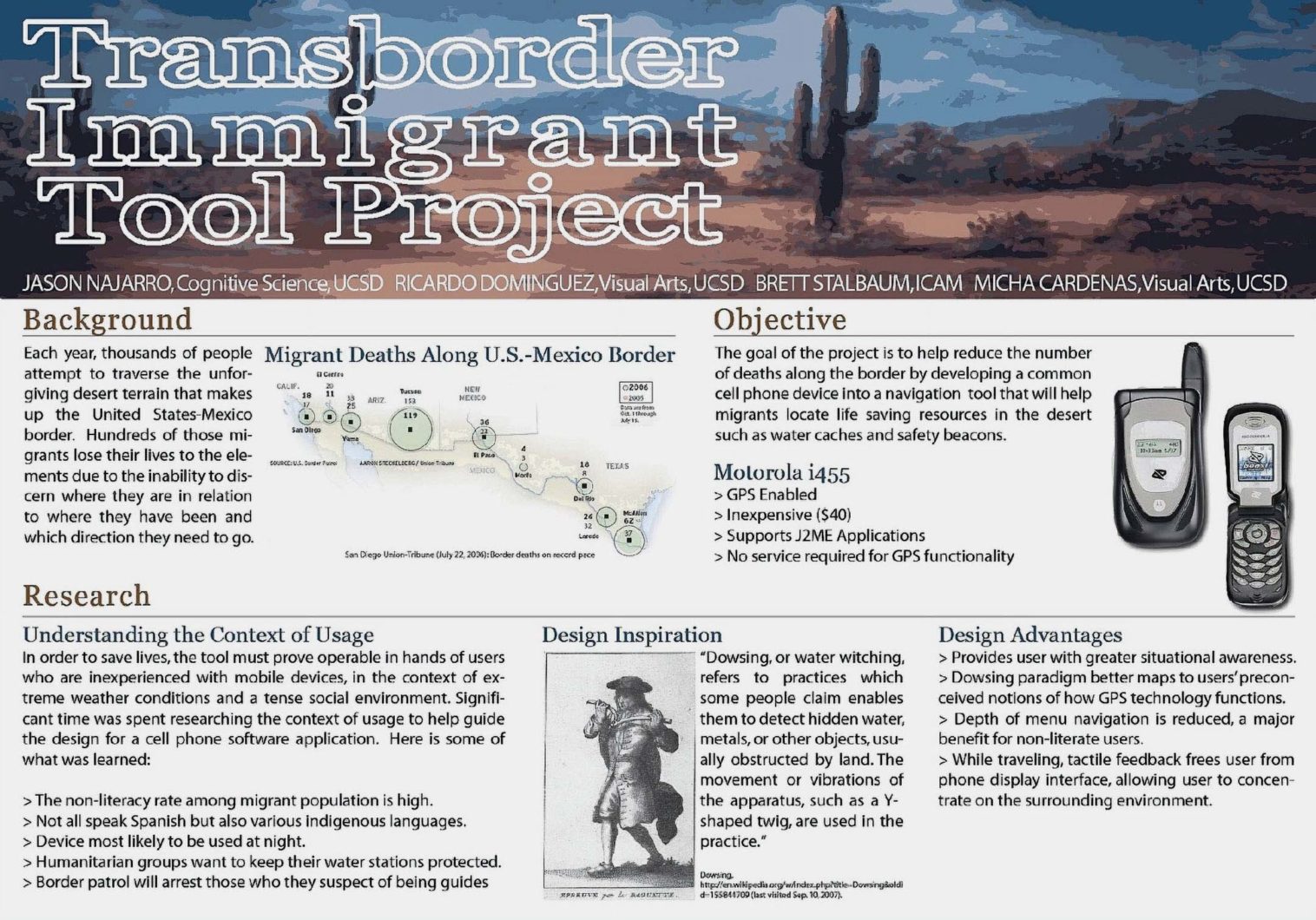Transborder Immigrant Tool
A tool that merges GPS technology with poetry to provide life-saving information and inspiration for migrants traversing treacherous border crossings.



Initiator(s)
Electronic Disturbance Theater (EDT) 2.0/B.A.N.G. Lab
Description
Researchers, new media artists, and co-founders of the Electronic Disturbance Theater/b.a.n.g. lab, Ricardo Dominguez and Brett Stalbaum, together with a wider team of poets and professors, devised the Transborder Immigrant Tool (TBT) to improve the odds of a safe crossing of the Mexico–U.S. border. Thousands of people have died in their journey, mostly due to its vertiginous and deserted geography. The TBT consists of a GPS system (in this case, standing for Geo Poetic System) with 24 hours of experimental poetry aimed at providing not only inspiration for survival, but also information on food/water caches, security activities, and directions to potentially safer routes. Its simple, user-friendly interface is designed as an easy hack to low-cost cell phones.
Goals
To guide the immigrants to water safety sites and to increase safety during border crossing.
Beneficial outcomes
While it takes the form of a functional opportunity to save the lives of other human beings, the tool is as much a cultural product aimed at bringing into light an important issue: the inequality between classes, drawn along racial and political boundaries, that has caused a deep resentment on both sides of the border.
Location
United States and Mexico border
Users
Ricardo Dominguez, Brett Stalbaum, Micha Cárdenas, Amy Sara Carroll, and Elle Mehrmand (the artists)
Maintained by
Calit2 (California Institute for Telecommunications and Information Technology) at the University of California in San Diego.
Duration
2007 - ongoing
Category
Scientific
Pedagogical
Politics
Urban Development
Economy
Environment
Social






